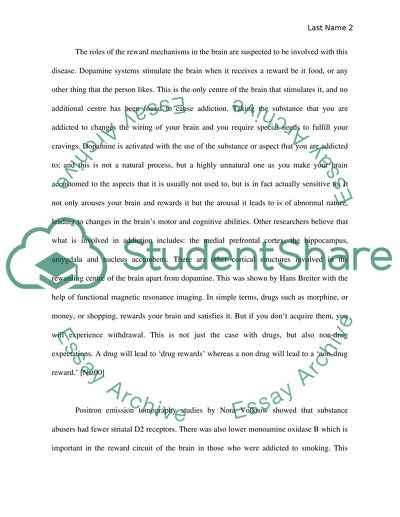Cite this document
(“Addiction is a Brain Disease Research Paper Example | Topics and Well Written Essays - 1250 words”, n.d.)
Addiction is a Brain Disease Research Paper Example | Topics and Well Written Essays - 1250 words. Retrieved from https://studentshare.org/biology/1444835-addiction-is-a-brain-disease
Addiction is a Brain Disease Research Paper Example | Topics and Well Written Essays - 1250 words. Retrieved from https://studentshare.org/biology/1444835-addiction-is-a-brain-disease
(Addiction Is a Brain Disease Research Paper Example | Topics and Well Written Essays - 1250 Words)
Addiction Is a Brain Disease Research Paper Example | Topics and Well Written Essays - 1250 Words. https://studentshare.org/biology/1444835-addiction-is-a-brain-disease.
Addiction Is a Brain Disease Research Paper Example | Topics and Well Written Essays - 1250 Words. https://studentshare.org/biology/1444835-addiction-is-a-brain-disease.
“Addiction Is a Brain Disease Research Paper Example | Topics and Well Written Essays - 1250 Words”, n.d. https://studentshare.org/biology/1444835-addiction-is-a-brain-disease.


